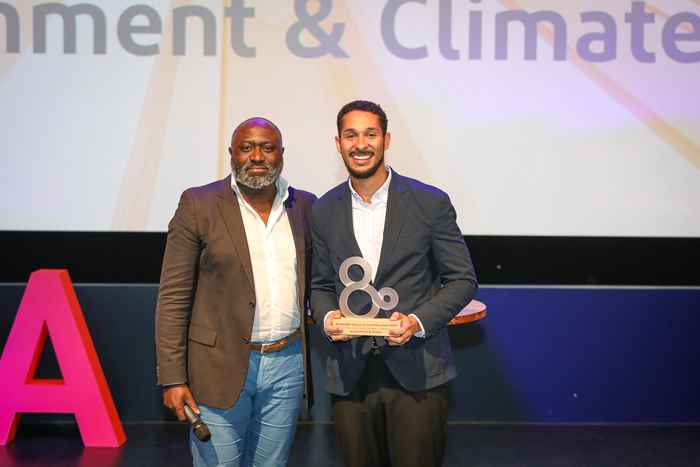Olivier Lugier wins Amsterdam Science & Innovation Award 2023
22 November 2023

Oliver Lugier and Dr Stefania Grecea have developed Nano Hybrids, a more sustainable technology for the production of nanoparticles. Nanomaterials are extremely small materials with unique properties that can revolutionise areas of high societal impact such as renewable energy and biomedicine. The problem is that nanomaterials are often difficult and polluting to produce. With Nano Hybrids, Lugier and Grecea have developed a more sustainable technology that makes the process of synthesising nanoparticles much more environmentally friendly.
In the Health category, Zeliha Guler (Amsterdam UMC) won with an innovative dissolvable implant for the much more effective treatment of pelvic floor prolapse in women. On average, one in four women suffers from pelvic floor prolapse. In the Society category, the prize went to Pepijn van Rutten (VU) for Respira, the world's first sensitive and reliable breath sensor to detect nitrous oxide. Unlike alcohol and drugs, there was no good way to detect the use of laughing gas in traffic.
Jury chairman Ruben Brave (tech entrepreneur and investor) praised the quality of the entries and the live pitches: "In all of them, there was a strong focus on the added value for society. The commercial awareness of the participants also stood out, as a product ultimately has to be brought to market.
The AmSIA is an initiative of Innovation Exchange Amsterdam (IXA) - the knowledge transfer office of the Hogeschool van Amsterdam, the University of Amsterdam, Vrije Universiteit and Amsterdam UMC. AmSIA challenges young scientists to develop innovative research-based ideas into applications. The ultimate goal is to have an impact and contribute to solving societal issues.